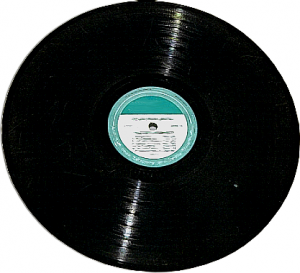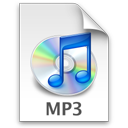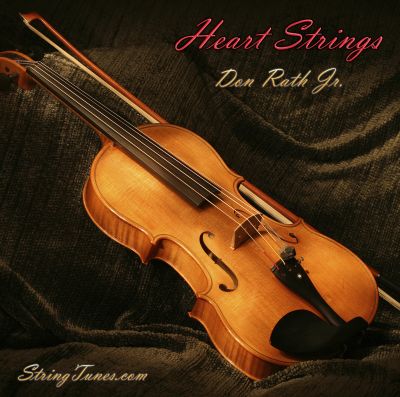Analog Versus Digital Sound Quality
Analog versus Digital Sound Quality
CD versus mp3 Sound Quality
Years ago, one of my favorite pastimes was sitting and listening to my favorite band or orchestral performances on LP vinyl records. These were recordings made using the analog recording processes. Then along came digital recording of music which at the time seemed a digression away from analog quality recordings. This was in the early days of digital sound. For a long time I firmly held the belief that analog was far superior to digital recording as far as strict quality was concerned and further that the CD digital format fell short in my enjoyment of the music, at least to my ears.
The introduction of the CD in the intervening years has become the newer music industry standard and has since been superseded by the abundant use of the mp3 format, which to me has been greeted almost universally with more enthusiasm than the original inception of the CD. Also, I have always felt there is a big difference in the recording quality of the CD over the mp3 format and that much of the character found in analog recording was lost in the transfer of live sound to the highly compressed mp3 formats.
Analog versus Digital Sound Quality
My Test for Sound Quality – When doing some of my own research comparing digital recording quality and analog recording quality one of the things that I did was to pulled out some of my old vinyl records. I picked some songs which I had in analog and in digital to test myself to see if I could tell the difference in the quality and character of the sound. I even used a pair of super expensive headphones to make my comparisons. This is what I discovered.
 First and most obvious was that the vinyl record when played back had scratches and pops and other annoying noises not originally recorded in the sound. I was disappointed that I had not taken better care of my LP album collection.
First and most obvious was that the vinyl record when played back had scratches and pops and other annoying noises not originally recorded in the sound. I was disappointed that I had not taken better care of my LP album collection.
Part of the cause of these bothersome noises was due to repetitive playing of the LP records on a phonograph player as the needle wears the grove and hence the embedded sound in the vinyl over time, in some cases badly. The other part, I am sure, had to do with my handling of the vinyl record over the years causing the scratches and other damage to them. Not everyone of my albums was damaged, thank heavens, so I selected the songs with the least of these issues.
Secondly, I made a mental effort and chose to overlook the scratches and pops and other noises and elected to focused on the actual sound itself. The quality of the sound was full, rich, warm, soothing and quite clear. I was a bit surprised that the quality was as good as it was considering the age of some of the music LP’s and how many times I had played them. However, since the LP was as close as I was going to get to pure analog sound and since the argument of analog sound was considered to be better than digital sound I had do an experiment to see if I could tell the difference.
The strongest argument in favor of analog recorded sound was that the rich full bodied sound of analog was superior then the supposed dryer digitized music. As I mentioned, that was also my opinion and the position I took when starting this test.
So, my initial experience within the first part of the experiment set the foundation and the bogey was also set pretty high as expected. My conscious and attentive listening period of analog sound proved to me how much I enjoyed the analog sound and that this listening experience was quite satisfying to me, cracks, pops and all.
Then I put the same music on, that which was recorded digitally and on CD. What I discovered immediately was that there were no clicks, pops, scratches or other sounds just the clarity of the recorded music. There were differences in the mixing and the mastering between them which I was able to distinguish. Overall, the sound was rich, full, pleasing, soothing etc, etc. There were very subtle differences but not enough to nullifying my initial belief, although I have to say that I was a little surprised to discover how difficult it was to tell the difference.
put the same music on, that which was recorded digitally and on CD. What I discovered immediately was that there were no clicks, pops, scratches or other sounds just the clarity of the recorded music. There were differences in the mixing and the mastering between them which I was able to distinguish. Overall, the sound was rich, full, pleasing, soothing etc, etc. There were very subtle differences but not enough to nullifying my initial belief, although I have to say that I was a little surprised to discover how difficult it was to tell the difference.
I must also include here that I have grown accustomed to digital recorded sound since I am working with it every day and in that regard my testing my be a little skewed. Also, expensive headphones and studio monitors isn’t exactly the normal listening experience for the average person.
CD versus mp3 Sound Quality
For the benefit of those who may not know, mp3’s can be converted from an uncompressed wave file using audio file converters. Typical of most digital file converters a person can convert the bit rate from higher quality to lower quality but not the other way around.
I took the uncompressed wave file and converted it to several bit rates to make additional comparisons. The lowest bit rate I’ve ever seen was 8kps however normally you see music in 96, 128, 192 or 320kps which is much superior in sound quality than the 8kps bit rate. The higher the bit rate the better the quality and kps means kilobytes per second.
Taking the next step in my testing, I listened to the CD versus the various mp3 formats of the same music. I discovered that it was again difficult at best to tell the differences between the two formats. One thing I did notice was that when the CD or wave file was converted to the lower bit rate of 96kps there were noticeable differences. When comparing the two at conversion rates of 196kps and then again at 320kps it was practically impossible to tell the difference whether the sound was recorded through an analog or digital means, especially when the bit rate was at 320kps.
the next step in my testing, I listened to the CD versus the various mp3 formats of the same music. I discovered that it was again difficult at best to tell the differences between the two formats. One thing I did notice was that when the CD or wave file was converted to the lower bit rate of 96kps there were noticeable differences. When comparing the two at conversion rates of 196kps and then again at 320kps it was practically impossible to tell the difference whether the sound was recorded through an analog or digital means, especially when the bit rate was at 320kps.
What the higher bit rates tell me is that it has become more and more difficult to tell the two apart.
What Others Say
I wanted further evidence that my own personal experience was confirmed by others and in my Internet search to learn this information I found the following video from PBS*. They were kind enough to grant me written permission to use the video in this posting.
I think the video and the demonstration within it offered some more evidence that my experience was indeed confirmed, that there really was very little difference between analog and digital recorded sound. Please feel free to review the video and see how this may or may not change how you feel about this type of comparison of sound quality between both the analog and digital sounds and those on a CD as apposed to an mp3 at higher bit rates.
Surprising isn’t it? I took it one step further and I asked several other people to check it out and their report back to me was similar. They really could not tell the difference with the exception of the pops, scratches and other damage caused noises. A couple of comments made to me were that they claimed the CD quality was better. They couldn’t explain exactly why but none the less they held their position. Interesting?
Now I know that most people do not listen to music with studio monitors or expensive headphones and most of the time there are other things going on where active listening is not the normal setting in everyday life. Passive and active listening does make a difference also. With that said, I think there is no absolute and definitive conclusion to come to for the average person about the differences in quality between analog or digitally recorded music, except maybe where a person holds onto an old belief for whatever reason.
That leads me to two important questions, first, in your opinion, have we been conditioned to listen less critically or in your opinion, has digital music improved the overall quality of recorded music?
Secondly, I would be interested in hearing about your experience comparing the quality differences between analog recording and digital recording as well as comparing the CD quality to the mp3. Check the Properties tab for the mp3 file to get the bit rate as this might be a deciding factor in your opinion. Please feel free to test for yourself and let me know what your experience is.
Thanks in advance for you input!
*Written permission to use the above video from PBS was granted and it is on file. If you would like to know more about PBS, its affiliated network of stations, its quality programming or other information about them, I urge that you visit the Public Broadcast System and provide support if you are able. Thanks!
Copyright secured by Digiprove © 2010 Don Rath Jr



